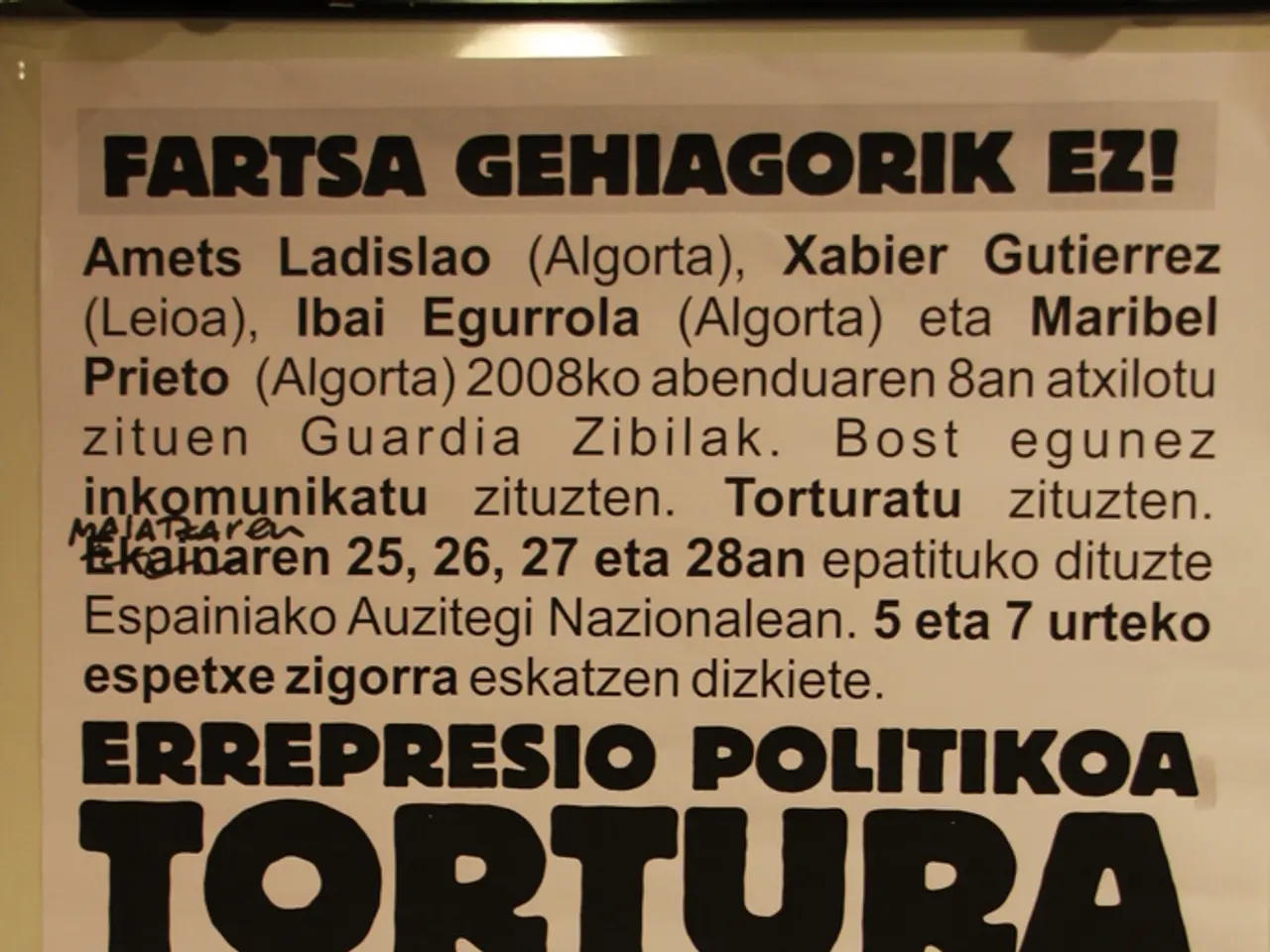Internet terrorism charges filed in Magadan
In a recent development, the Federal Security Service (FSB) of Russia has confirmed that the Magadan Incidents Channel, a popular platform for discussions about life in the Magadan Region, is not under investigation for any illegal activities. The FSB's press service made this clear to a news agency, stating that the Channel does not violate public calls for terrorist activity under Article 205.2, Part 2 of the Russian Criminal Code.
However, an individual's actions were thwarted during operational-investigative activities by the FSB. This Russian citizen, whose identity has been confirmed, posted messages inciting violent actions against representatives of state authorities on a public social network. As a result, a criminal case has been opened against the individual by the FSB's investigative department.
It is important to note that the Magadan Incidents Channel's discussions do not typically involve incitement to violent actions against state authorities. The Channel has been a platform for various discussions, including local news and events, and it has a significant user base in the Magadan Region.
Despite the FSB's statement, there has been a growing environment of legal repression and harsh prosecution related to incitement and extremism in Russia and occupied territories. The Russian government has intensified internet censorship and crackdown on extremist content, with new laws criminalizing even the searching for extremist content online and restricting the use of VPNs.
Russia's broader legal environment includes outlawing groups deemed extremist such as the “International Satanist Movement,” framed as a threat to constitutional order and inciting violence. These actions reflect a wider trend of criminalizing perceived threats to state authority.
However, as of August 2025, there are no publicly available direct updates specifically concerning a criminal case against a Russian citizen under Article 205.2, Part 2 of the Russian Criminal Code for inciting violence against state authorities. For precise details or case status for a named individual or particular proceedings, official Russian legal or news sources may be required, as the available open sources note broader patterns rather than discrete cases.
[1] "Russia's Aggressive Suppression of Dissent and Civic Activism in Occupied Ukrainian Territories" - Human Rights Watch, [link]
[2] "Crackdown on Opposition in Occupied Ukrainian Territories" - Amnesty International, [link]
[3] "Russia's Internet Censorship and Crackdown on Extremist Content" - The Guardian, [link]
[4] "New Laws in Russia Restrict Use of VPNs and Criminalize Searching for Extremist Content Online" - The Moscow Times, [link]
[5] "Russia Outlaws International Satanist Movement as Threat to Constitutional Order" - Reuters, [link]
- The Magadan Incidents Channel, a platform for general-news and local discussions, has recently been cleared of any illegal activities investigations by the FSB, unlike an individual who posted messages inciting crime-and-justice on a different social network, leading to a criminal case.
- Despite the FSB's statement, policies in Russia and occupied territories related to incitement and extremism continue to exhibit a pattern of legal repression and harsh prosecution, as demonstrated by the outlawing of groups like the "International Satanist Movement," with new laws criminalizing even the search for such content online and restricting the use of VPNs.








